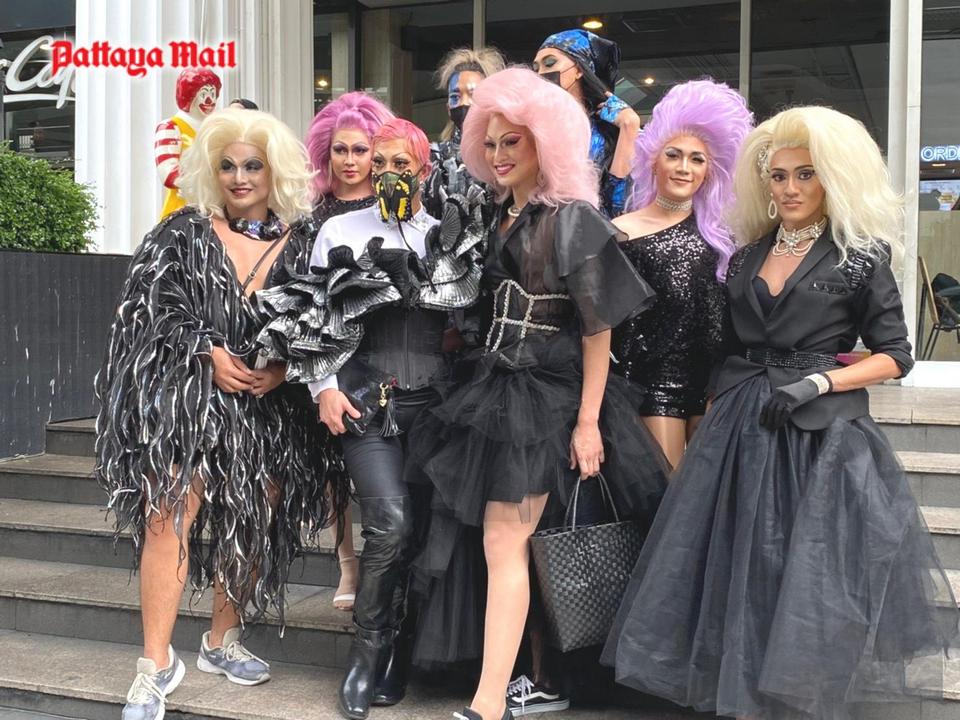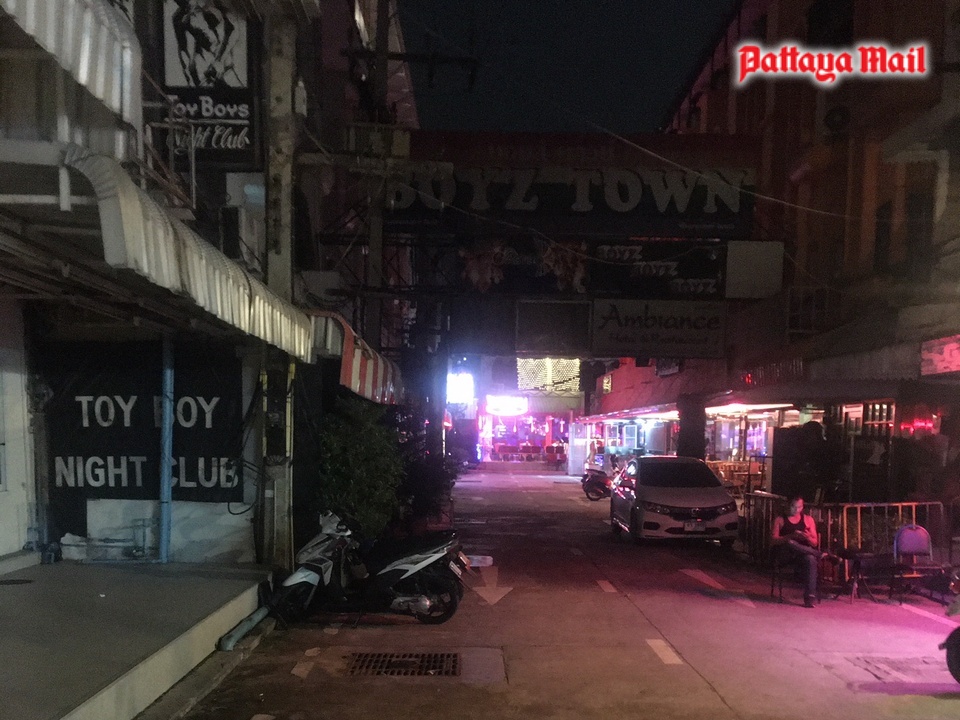
There is no shortage of prophets of doom concerning the future of gay bars and clubs. Worldwide about half have closed already and “queer spaces” in the USA and UK are being eaten alive by massive building projects and tower blocks. Pattaya, of course, is no exception and certainly exceeds the 50% closure estimate.
Blame is usually loaded onto the coronavirus pandemic, but that’s an over-simplification. Drag cabaret artiste and LGBTQ+ spokesperson Eggz Benedict says the Pattaya gay scene has been in decline at least 10 years. “There are so many factors,” she says, “Thailand got expensive for western tourists, regular police crackdowns began and digital hookup platforms such as Grindr and Hornet replaced chrome poles, dark rooms and dance floors.”

Her work colleague Mattress Lil points out that the three main gay districts in Pattaya are very different. “Boyztown in its heyday was the posh area, but basically priced itself out of the market.
Sunee Plaza catered for the men looking for young teens and that scene was obliterated by the police years ago. Jomtien Complex, also known as Super Town, has survived as an open bar area with no nightclubs. It’s generally quiet these days, but the Thai and foreign operators are mostly wealthy and are biding their time.”

But both predict that there will be a comeback once the virus subsides. “Foreign gay tourists don’t just want a casual pickup, they want company and entertainment which are things the internet can’t provide in a real form,” prophesied Eggz, “even though the next influx will be Chinese and Asians rather than Europeans.” This idea that community rather than casual sex is the key to the future gay scene was voiced by many Pattaya old hands.
Chris Summers, who has wide experience of running gay businesses said, “You have to remember that the organized Pattaya gay scene is geared to foreigners’ wallets virtually one hundred percent. Gay Thais prefer to meet other Thais via the internet or at private parties.” He added that the days of go-go boys wearing numbers on their underpants for ogling foreigners were rapidly coming to an end. “The bars that survive after the pandemic will be cosy and relaxed rather than the noisy, seedy knocking shops of the past.”
Gay prostitution will survive for obvious reasons, but that too will change. “It will become much more expensive,” Chris predicted, “as the Thai economy diversifies, the country becomes wealthier (post Covid) and selling your body is no longer a convincing career route as Thailand ages demographically whilst the birth rate plunges.” By the end of the current decade more than half of all Thais will be in their fifties or later. By 2040 the working age population will be smaller than the retired cohorts.
Khun Nam, a currently unemployed worker at Pattaya’s Tiffany’s cabaret, stresses that transvestite shows were never aimed primarily at gay tourists. “Before the pandemic, there were four huge Pattaya theatres catering nightly for hundreds of Chinese family tourists arriving in coaches twice or three times nightly.” He added that about 500 professional cabaret artists would soon return to work once quarantine is no longer required for visitors. That could be before Christmas.
Kevin Smythe, a computer specialist living in Pattaya, said, “New technology has its limits in Thailand. For example, the media communications platform Zoom in theory can provide gay virtual entertainment and lively music in your own home. But it has not taken off in Thailand. Most of the staff employed in gay bars and clubs are temporary or non-secured staff. They can’t make any money from virtual customers. They need people coming in through the door.”
Pattaya City in 2021 is in a state of flux. Even the pandemic hasn’t stopped the building boom whilst the industrial Eastern Economic Corridor has already removed most of the greenery and wildlife between Pattaya and Rayong. The “old” Pattaya is not about to return, but – over time – will assume new tourist functions in response to developing markets. The future gay scene is no exception to the rule.





